The Alliance of World Scientists’ (AWS) Planet Earth Award acknowledges individuals who champion life on Earth. These individuals demonstrate exceptional creativity or contributions in their work in science or science-based advocacy with the public, policymakers, or other groups seeking solutions to environmental challenges. The award will recognize individual people or be shared by two or more people. Click here for more details.

Prof. Paulo Artaxo
Brazil
Prof. Paulo Artaxo is a professor of environmental physics at the University of São Paulo, Brazil. He has studied the processes linking Amazonian forests to the regional and global climate for 40 years. A leading climate scientist helped unveil the processes by which plants emit volatile organic compounds, producing Cloud Condensation Nuclei, linking the hydrological cycle with forest emissions. He also studied the role of aerosol particles from biomass burning in regulating the Earth's radiative forcing. He directs the Center for Amazonian Sustainability of the University of São Paulo. He was a lead author of the last 3 IPCC Reports (AR4, AR5, and AR6). Is a member of the World Academy of Sciences (TWAS), the Brazilian Academy of Sciences, and a fellow of AAAS. Learn more about Prof. Paulo Artaxo

Dr. Edward Barbier
United States
Dr. Edward Barbier is a globally renowned environmental economist and a highly cited scholar on economy, nature and sustainability. His co-authored book Blueprint for a Green Economy received the 1991 Gambrinus Guiseppe Mazzotti Special Jury Prize, and is listed among the top 50 books on sustainability. When Barbier directed the International Institute for Environment and Development’s London Environmental Economics Centre, IIED was awarded the Blue Planet Prize. Barbier was named an Aldo Leopold Leadership Fellow in 2005 and a Fellow of the Association of Environmental and Resource Economists in 2015. His book, Economics for a Fragile Planet, was Winner of the 2022 Choice Outstanding Academic Titles. In 2025, Barbier was shortlisted for the Nature Awards Standing Up for Science - The John Maddox Prize. Learn more about Dr. Edward Barbier

Dr. Dominick DellaSala
United States
Dr. Dominick DellaSala is a forest ecologist with decades of experience studying and protecting the lungs of our planet. His focus is international forest biodiversity, climate change, and justice for plants and animals as well as people. Forests are still standing that would not be otherwise, thanks to his tireless, courageous efforts. He has an impressive CV of scientific publications, but beyond traditional scientific publications, he speaks truth to power in Congressional hearings, meetings with decision-makers, opinion pieces, public speaking engagements, and other outlets. He is open to new ideas but a firm believer in science and evidence. He is inclusive, well-spoken, and passionate, and respected by many. He is a true forest hero and strong candidate for this award. Learn more about Dr. Dominick DellaSala

Dr. Luisa Maria Diele-Viegas
Brazil
Dr. Luisa Maria Diele-Viegas is a Brazilian ecologist whose work bridges climate science, biodiversity conservation, and social justice. As a postdoctoral researcher at Michigan State University and permanent professor in Brazil, she has published 75 scientific papers on climate change impacts on reptiles and amphibians, particularly in threatened Brazilian ecosystems. She co-founded the Kunhã Asé Network of Women in Science and chairs the Brazilian Chapter of the Organization for Women in Science for the Developing World (OWSD). A Global Young Academy member and consultant to Brazil's Ministry of the Environment on the National Biodiversity Strategy, she mentors over 60 students through her Laboratory of (Bio)Diversity in the Anthropocene. Her transdisciplinary approach integrates Indigenous knowledge with climate science, empowering traditional communities facing environmental crises while advancing gender equity in science. Learn more about Dr. Luisa Maria Diele-Viegas

Dr. Susan M. Natali
United States
Dr. Susan M. Natali is an Arctic scientist whose research focuses on the local to global impacts of permafrost thaw. She leads the Permafrost Pathways project, where she collaborates with Indigenous communities, researchers, and policymakers to advance equitable solutions to Arctic warming. Dr. Natali has published over 100 peer-reviewed studies, briefed federal lawmakers, contributed to international science reports, and presented at multiple UN climate conferences. She has received the American Geophysical Union’s Joanne Simpson Medal and Sulzman Award. A TED speaker and mentor through the Polaris Project, Dr. Natali was featured in Permafrost Now and The Big Thaw. She has been selected as an author on the IPCC's Seventh Assessment Report and quoted in major media outlets, including The New York Times, NPR, The Guardian, and the BBC. Learn more about Dr. Susan M. Natali

Dr. Katarzyna Nowak
Poland
Dr. Katarzyna Nowak is a conservation practitioner whose work connects science, advocacy, and ecosystem protection. She leads the Conservation Science Group at the Mammal Research Institute Polish Academy of Sciences and has held positions at Princeton University, Durham University, University of Alberta, University of Warsaw, and The Safina Center. She has collaborated with international NGOs, universities, and governmental agencies in countries in Africa, North America and Europe on wildlife conservation projects, and, more recently, has researched the socio-ecological impacts of border militarization, an understudied area in conservation science. She helped lead an international call for greater scrutiny and accountability regarding the expansion of European border infrastructure. She has advanced more inclusive science, including by co-founding Gage with 500 Women Scientists, and regularly communicates research through media outlets. Learn more about Dr. Katarzyna Nowak

Dr. Andrew J. Weaver
Canada
Dr. Andrew J. Weaver is a Professor in the School of Earth and Ocean Sciences at the University of Victoria and former Canada Research Chair in Climate Modelling and Analysis. Elected as the first BC Green Party MLA in 2013 for Oak Bay–Gordon Head, he later led the party to a historic 2017 result, securing three seats and the balance of power. Dr. Weaver has authored over 250 peer-reviewed papers and served as a Lead Author for four IPCC assessments. A fellow of several leading scientific societies, Dr. Weaver is a recipient of major national and international awards, including the Order of British Columbia. He also published two books: Keeping Our Cool: Canada in a Warming World (2008) and Generation Us: The Challenge of Global Warming (2011). Learn more about Andrew J. Weaver
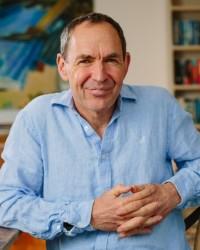
Prof. Mike Berners-Lee
United Kingdom
Prof. Mike Berners-Lee thinks, writes, researches and consults on sustainability and responses to the challenges of the twenty-first century. He is a professor at Lancaster University where his research includes carbon metrics, the global food system and the impact of technology. He is the founder of Small World Consulting, which works with organisations of every size to address the challenges of the Anthropocene. His latest book, A Climate of Truth, takes both a big-picture and deep-dive approach to the polycrisis, exploring our failures so far in order to uncover the point of greatest leverage for those seeking change. His other best-selling books include How Bad Are Bananas? The Carbon Footprint of Everything and There Is No Planet B: A Handbook for the Make-or-Break Years. Learn more about Prof. Mike Berners-Lee. See press release for details.
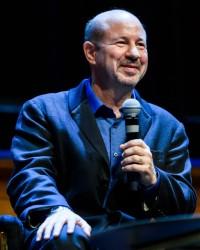
Dr. Michael E. Mann
United States
Dr. Michael E. Mann is a Presidential Distinguished Professor of Earth and Environmental Science at the University of Pennsylvania, with a secondary appointment in the Annenberg School for Communication. He directs the Penn Center for Science, Sustainability, and the Media. A leading climate scientist, Mann is known for his "hockey stick" graph showing the sharp rise in global temperatures over the past century. His work has advanced understanding of human-induced climate change and the need for action to mitigate its effects. He has received numerous honors, including the Award for Public Engagement with Science and the Tyler Prize for Environmental Achievement. In 2020, he was elected to the U.S. National Academy of Sciences, and in 2024, to the Royal Society. His upcoming book, Science Under Siege, is co-authored with Peter Hotez. Learn more about Dr. Michael E. Mann. See press release for details.
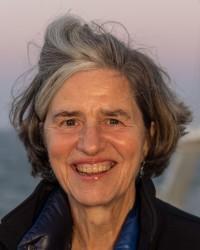
Dr. Katherine Richardson
Denmark
Dr. Katherine Richardson is a professor in biological oceanography at the University of Copenhagen who, for more than three decades, has actively contributed to the development of Earth system science. She is one of the main architects behind the “planetary boundaries” framework and led the 2023 update that now has been downloaded over half a million times. She is active at the science-policy and science-society interfaces and chaired the Commission that produced a plan for how Denmark can be independent of fossil fuels. She was a member of the Independent Group of Scientists that prepared the 2019 UN Global Sustainable Development Report and currently chairs the High-level EU Expert group on the economic and societal impact of research and innovation (ESIR). Learn more about Dr. Katherine Richardson. See press release for details.
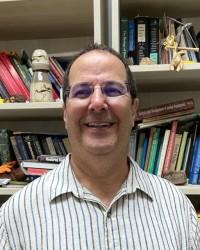
Dr. Walfrido Moraes Tomas
Brazil
Dr. Walfrido Moraes Tomas has been a researcher at the Embrapa Pantanal Research Center in Brazil since 1990, where he has published over 200 articles, chapters, and books on topics including wildlife conservation, biodiversity management, landscape ecology, sustainability indicators, impact evaluation, and public policy. His major research projects have focused on sustainable ranching practices and combating wetland caiman poaching in Brazil. In addition to his academic contributions, Dr. Tomas plays an active role in shaping Brazilian environmental legislation, particularly at the federal and state levels. He also represents Brazil at the Organisation for Economic Co-operation and Development (OECD), where he advocates for biodiversity indicators for agricultural landscapes, working to integrate environmental sustainability with agricultural practices at an international scale. Learn more about Dr. Walfrido Moraes Tomas
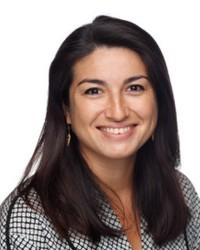
Dr. Flora Vincent
Germany
Dr. Flora Vincent is a marine scientist and group leader at the European Molecular Biology Laboratory (EMBL) in Heidelberg, Germany. Her research focuses on microbial interactions, such as symbiosis and viral infection, and their effects on phytoplankton, which are key to the ocean food web. She combines laboratory experiments with ocean expeditions, developing single-cell approaches in microbial ecology. Dr. Vincent coordinated major scientific efforts, including the 'Gayoso' expedition on coccolithophore blooms off Argentina and the 15-month TREC expedition involving over 150 EU scientists to collect metadata across coastal gradients. A core member of the Plankton Manifesto editorial team, she fosters international collaboration on climate change and inspires the next generation through initiatives like the Tara Foundation educational programme and children's literature. Learn more about Dr. Flora Vincent. See press release for details.
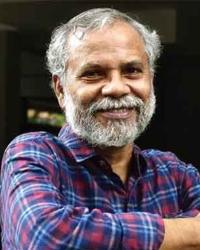
Dr. S Faizi
India
Dr. S Faizi is an eminent environmental scientist and global policy expert from India. He has played a pivotal role in articulating the global South's stance on key environment and development issues, often overcoming opposition from Western negotiators at UN environmental conferences. Dr. Faizi’s accomplishments include important contributions to landmark global events such as the UN Conference on Environment and Development (Earth Summit) and the Convention on Biological Diversity. His efforts have ranged from advocating for national sovereignty over biodiversity to proposing the creation of a UN Environmental Security Council. More recently, this former anti-Apartheid activist has campaigned for nuclear disarmament and democratizing the UN Security Council. He has made significant contributions to forest conservation, biodiversity research, and supporting indigenous rights. Learn more about Dr. S Faizi
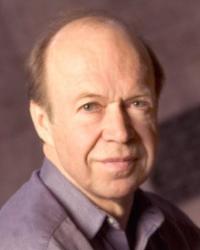
Dr. James Hansen
United States
Dr. James Hansen is a prominent climate scientist who lives in the United States. He gained recognition for his pioneering research on climate change during his past work at NASA that continues through today. Dr. Hansen played a key role in raising awareness about the human impact on the Earth's climate, particularly through his testimony before the U.S. Congress. Dr. Hansen has been an advocate for rapid action to mitigate climate change, urging governments and the public to address the environmental challenges facing the planet, and even engaging in non-violent civil disobedience. He continues to work in climate science, as a consultant for youth climate cases, has a climate change newsletter, and recently led a paper assessing global warming in the pipeline. Learn more about Dr. James Hansen

Dr. Denise Margaret S. Matias
The Philippines
Dr. Denise Margaret S. Matias, originally from the Philippines, is a Professor at Eberswalde University for Sustainable Development in Germany, and a notable advocate for environmental policies. She has worked to preserve honey bee diversity and carried out a project with the Tagbanua Indigenous people to restore giant honey bee habitat by planting native species. She has also worked extensively with environmental groups, including Conservation International and Greenpeace Southeast Asia. In addition to ecology, Dr. Matias has published work on climate adaptation and slow-onset climate events. Dr. Matias has consistently prioritized outreach and science-based advocacy through interviews, social media, and presentations to diverse audiences. Learn more about Dr. Denise Margaret S. Matias
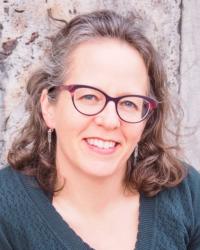
Dr. Kimberly Nicholas
Sweden
Dr. Kimberly Nicholas is a sustainability scientist at Lund University in Sweden and a prominent figure in the field of climate and sustainability. She has published many articles in leading peer-reviewed journals, and also contributes to mainstream publications like Elle, The Guardian, Scientific American, and New Scientist. Dr. Nicholas is author of the bestselling book "Under the Sky We Make: How to be Human in a Warming World” and she shares her insights through a monthly climate newsletter, “We Can Fix It.” Apart from her academic contributions, Dr. Nicholas is actively engaged in public speaking and frequently lectures at international meetings. Additionally, she serves as an expert commentator for many media interviews annually, and her work has been featured in outlets including The Washington Post, BBC, WIRED, and Politico. Learn more about Dr. Kimberly Nicholas
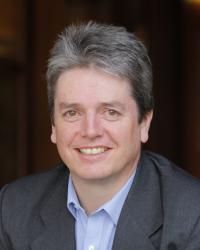
Dr. Jamie Pittock
Australia
Dr. Jamie Pittock is a Professor at the Australian National University and former Director of the World Wide Fund for Nature – International’s Global Freshwater Program. He is a dedicated champion of freshwater conservation, making impactful strides through his academic studies and science-based communications to colleagues, policy makers, and the public. Through outreach efforts with books, blogs, presentations, and videos, he communicates the urgency of conserving freshwater ecosystems and biodiversity in the context of the pressing challenges posed by climate change. He consistently offers informed commentary on how to better manage increasingly scarce water resources to benefit people and nature. His commitment to bridging academic research with practical solutions underscores his role as a catalyst for positive change in freshwater conservation, providing significant impacts linking scientific understanding to public and policy engagement. Learn more about Dr. Jamie Pittock
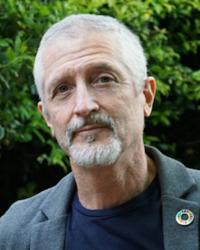
Dr. Fernando Valladares
Spain
Dr. Fernando Valladares is a distinguished figure in the field of Biological Sciences, serving as a Research Professor at the Spanish National Research Council in Spain. He has made significant contributions to ecology and plant biology, including hundreds of scientific articles and several books. Beyond his scientific endeavors, Dr. Valladares is actively involved in science-based climate advocacy, employing various platforms such as social networks, a personal blog, and a YouTube channel. His influential role extends to political spheres, as seen in his intervention in the Congress of Deputies within the ecological transition commission. He contributes regularly to media outlets, engages in Rebelión Científica (Scientist Rebellion), and participates in interviews on radio and television programs with broad audiences. Learn more about Dr. Fernando Valladares
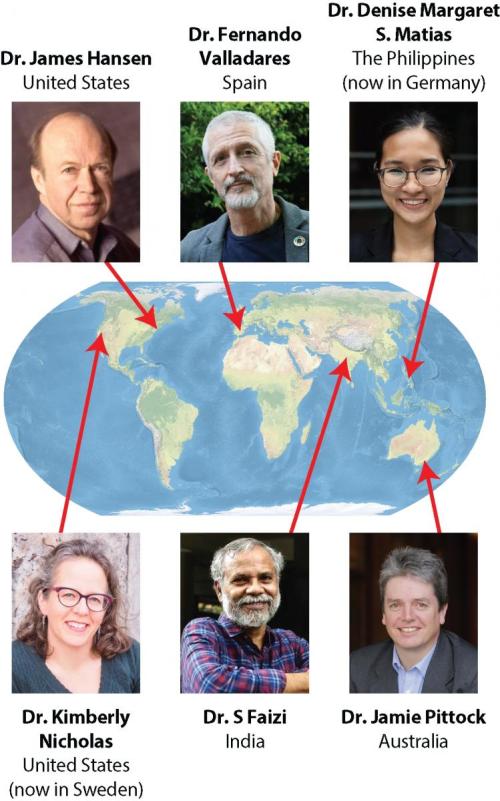
Award Information
Eligibility
Scientists are eligible for the Planet Earth award.
Selection criteria
The recipient (or recipients) of the award will be a scientist who meets at least the first criterion:
- [Required] Engaged in applied science or science-based advocacy with other scientists, the public, policymakers, or other groups about one or more environmental challenges.
- [Optional] Demonstrates exceptional creativity, contributions, or impact in their work.
- [Optional] Their work and outcomes are grounded in justice or related ideas.
Science advocacy can take many forms, including public outreach and education, policy advocacy, community engagement, conducting applied science, defending scientific integrity, and support for research and innovation. It seeks to bridge the gap between the scientific community and the broader public, encouraging dialogue, understanding, and support for scientific endeavors.
Nomination procedure
We use a two-step nomination process:
- Send in a nomination letter of no more than 1 page that describes the nominee and addresses at least the first selection criterion as an email to: scientistswarning@oregonstate.edu (no self-nominations are accepted). Additionally, please provide a one paragraph (< 125 words) summary of the nominee. For example summaries, see the Laureates section.
- Submitted nomination letters will be evaluated and ranked by a committee of AWS members.
We seek nominations of individuals who work or have impacts anywhere in the world and at any scale (local to global). Our goal is to empower people by recognizing their work, and as such, we encourage nominations of people representing underserved populations.
Deadlines
Late this year, we will be requesting nominations for the 2027 awards.
About the AWS
The AWS provides the collective international voice of thousands of scientists regarding the global climate crisis and environmental trends with the intent to turn accumulated knowledge into action. Scientists from all disciplines are invited to join the AWS. There are currently more than 26,000 scientist members.